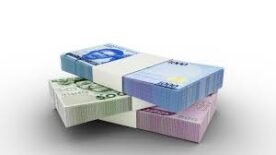The Nigerian Naira lost its shine as the best performing currency in Sub-Saharan Africa. According to the World Bank, the Kenyan shilling has gained 21 percent year-to-date by the end of August 2024, making it the best performing currency in the region.
The report also highlighted that tighter financial conditions, a strong dollar, and foreign exchange market reforms have led to the weakening of most currencies in Sub-Saharan Africa in 2023.
The Angolan kwanza, Malawian kwacha, Nigerian naira, South Sudanese pound, and Zambian kwacha were reported as the worst performing currencies in the region in 2023. However, some currencies like the Kenyan shilling and South African rand have shown signs of strengthening.
The World Bank also pointed out that the Ethiopian birr, Nigerian naira, and South Sudanese pound were still among the worst performers in the region by the end of August 2024, despite some currencies stabilizing. The report further warned that exchange rate pressures and shortages of foreign exchange remain a concern for African policymakers.
The Nigerian naira depreciated by 6.4 percent against the dollar on Tuesday, with the dollar quoted at N1,658.97 compared to N1,552.92 on Monday at the Nigerian Autonomous Foreign Exchange Market (NAFEM). The official foreign exchange (FX) market turnover also declined by 36.62 percent at the close of trading on Tuesday.
The Nigerian naira continued to lose value, with a year-to-date depreciation of about 43 percent as of the end of August, according to the World Bank. The bank attributed the naira’s weakening to surges in demand for US dollars in the parallel market, limited dollar inflows, and slow foreign exchange disbursements to currency exchange bureaus by the central bank.
The depreciation of the naira began following the unification of the exchange rate and the allowance of the local unit to be determined by market forces in June.
The liberalization of the foreign exchange segment, aimed at attracting more capital inflows, has led to the naira losing about 70 percent of its value. The Africa’s Pulse report stated that the weakening of most African currencies resulted from foreign exchange shortages as export proceeds were subdued and international debt payments increased.
Despite the challenges, the report also highlighted that the naira’s real exchange rate is at its most competitive in at least 20 years, presenting a great opportunity for the private sector, according to World Bank’s Chief Economist Indermit Gill.

Administrator and Writer






















































